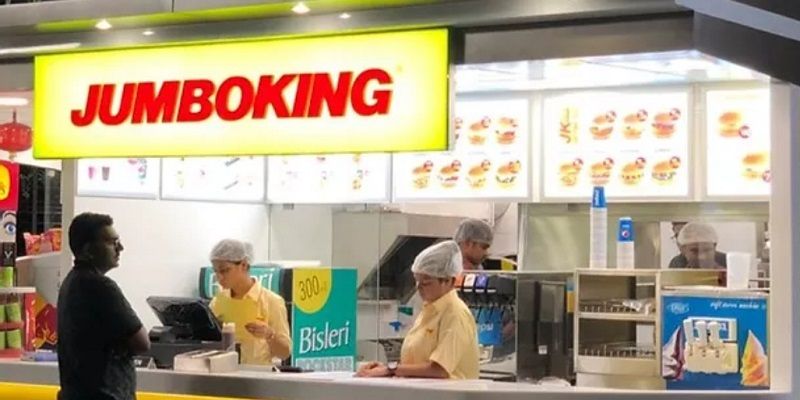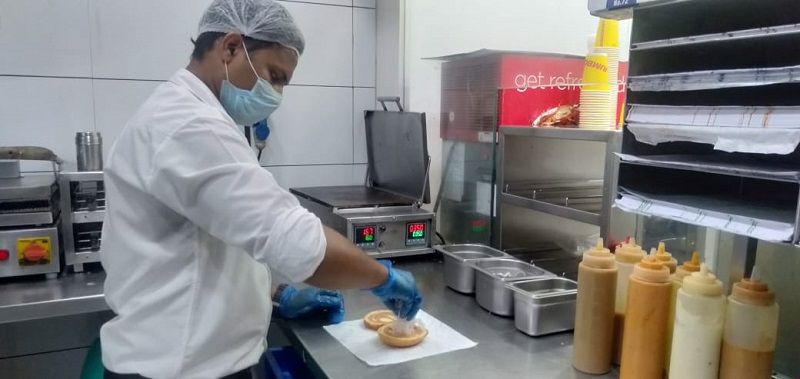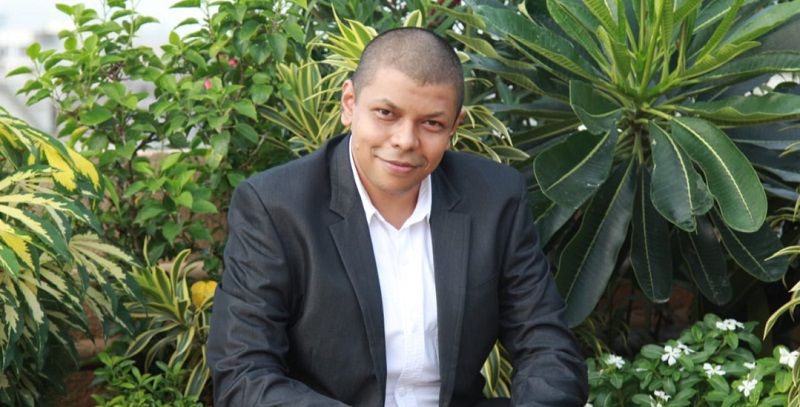Dheeraj Gupta, Founder and Managing Director of Jumbo King, was inspired by John F Love’s McDonald’s: Behind the Arches, when he laid the foundation of his QSR chain with an outlet outside Malad railway station in Mumbai in August 2001.
Over the next few years, he and his co-founder and wife, Reeta, took Jumboking to new heights. Their initial investment of Rs 2 lakh led to a 32-store chain eyeing Rs 10 crore turnover in 2007, and went up to 45 outlets in 2008.
By 2012, Jumboking had a presence in 13 cities with 100 company-owned stores.
But things went downhill in the next couple of years.
Dheeraj had raised Rs 10 crore venture capital from undisclosed sources in 2010, and was soon struggling with unit economics and overhead costs like rents and salaries.
"To win the QSR business in India, you need to own and understand the consumer. Foreign chains have the knowledge and understand what customers choose; that's what Indian brands must solve at scale…we are on that journey," Dheeraj says.
The founder then took a bold bet, completely realigning the business model from company-owned stores to a franchise model. This move helped QSR business navigate the choppy waters it found itself in and brought it back from the brink in 2013.
Today, Dheeraj and his 50-member team handle 114 franchise stores in only two cities, Mumbai and Pune. They have bigger plans: 1,000 stores in the next five to seven years.
“Marketing an idea is about changing behaviour, which takes time. Think about which brand dominates the dine-in and delivery pizza experience. Not many Indian brands have reached that scale as yet. These international brands have changed the experience for Indians and have used franchising well for over 50 years,” he says, explaining why he decided to change his model.
Dheeraj believes franchising is the oldest business, one that “makes microentrepreneurs flag-bearers for a brand.

Turning company-owned stores into franchises helped Jumboking navigate the choppy waters it found itself in.
“We have been able to scale up with lower costs because of our franchise partners. Over the last decade, Jumboking, which started as a vada pav brand, has grown as a burger brand.”
The new QSR wave
Between 2005 and 20012, during the great retail expansion in India, the rise in consumption made is necessary to have 'X' number of stores on paper to get a valuation. For most brands, this expansion failed as many stores were an overkill and people flocked to traditional retail and traditional QSR, which meant the organised retailing and QSR business was slow to take off.
Organised retailers/chains had expanded across India by adding more stores in various catchments to capture demand. However, they were paying high rentals and competing against the frugal kirana or standalone family-owned store, which led organised stores to close or incur huge debts to keep operations afloat.
Reliance Retail’s acquisition of Future Group in 2020 seemed to signal the end of that great expansion era.
However, retail QSR found new heroes such as Rebel Foods, which took the opposite route and said no to physical stores. They went the direct-to-consumer (D2C) route along with foodtech companies like Swiggy and Zomato. Having raised $125 million, Rebel Foods now has a soonicorn valuation and has ushered in a new QSR wave.
So, is Jumboking considering D2C as its next step in the growth phase? Dheeraj, who believes that India will always want a blend of physical and online experiences, thinks differently.
“Cloud kitchens have always been around, according to me. International pizza companies were always based on that model. But what gets to me is that people say cloud kitchens are a business that brings down cost. Does it really? Check the marketing spends and you will see that they’re much more than costs associated with physical stores. My franchises will benefit from being associated with the Jumboking brand and by associating with delivery partners like Swiggy and Zomato,” he says.
Focusing on technology
Dheeraj believes this is not a race to be won by valuation; it is a long marathon that he intends to “finish”.
This is why he has invested in technology to better understand the supply chain, based on consumption. The factory he outsources his orders to has a manufacturing capacity of 1.8 tons per day, which include buns and patties. All food products are standardised so that the taste is the same in every outlet.
The technology, built in-house, helps Jumboking know what sells at a particular outlet and it replenishes those stocks automatically.
The technology can be thought of as an application that captures data at the point-of-sale machine on what a consumer consumed. From that data, the tech derives what ingredients need to be replenished. The data goes directly to the manufacturer, who fulfils the orders.

Jumboking, which now has 114 franchise stores in Mumbai and Pune, is eyeing 1,000 stores across India in the next five to seven years.
The forecasting knowledge has helped the brand cut down expenses and made it profitable for the last six years.
How the pivot panned out
The shift to a franchise-owned model has worked well for Jumboking. In2012, despite a presence in 13 cities with 100 company-owned stores, the company found that sales were taking a major hit. Dheeraj decided to pivot and converted outlets that were doing well to franchise-owned stores; the team now handles 114 outlets.
The company works on a low investment model for a franchisee: s/he has to pay Rs 30 lakh upfront to operate the brand. Once set up, s/he will have to pay a fixed percentage – 10 percent – on the top line.
“My franchise partners have done very well for themselves and we have remained profitable at almost every store,” Dheeraj says.
Jumboking last filed its ROC details in 2018. Data reveals that the brand was at $1 million annual revenues as of 2018, and at $1.5 million in annual revenues as of 2020. The company makes a net margin of 8 percent.
If one calculates the total revenues of franchisees or the Gross Transaction Value, Jumboking would be a much bigger brand. The GTV of all the stores, when calculated with details available with the ROC, shows that the revenue was already more than $10 million in 2018. This shows that the brand has seen success - it made annual revenues of Rs 25 crore ($4 million) during its peak in 2012.
The founder is now eyeing a 10x growth in stores and revenues in seven years.
“I will raise capital. But I am eager to meet the right franchise partners. I am not willing to expand for the sake of it; it has to be well thought through. Our ambition is to go to 1,000 stores in the coming years," Dheeraj says.
The founder believes that a brand's journey takes more than 10 years.
“It is sustained over generations. As an entrepreneur, there is only one focus: to add value to the franchisee’s business as we know the customer and what he wants,” Dheeraj says.

Jumboking Founder Dheeraj Gupta is eyeing a 10x growth in stores and revenues in seven years.
The Jumboking team is cognisant of the fact that COVID-19 has changed the QSR experience. Their supply chain was hit during the first three months as the Chandigarh manufacturing unit could not supply to the Mumbai warehouse and their stores were shuttered. Now that the borders have opened up, supply is back to normal.
But Dheeraj believes that one can never prepare for a pandemic. “Our frugality, over the years, has helped us prepare by taking care of our staff. Since our operational costs are low, we will sustain our business in the long run.”
Zomato and Swiggy contribute to 20 percent of the top line of franchisees.
“I will continue to focus on customers and this pandemic will also show us what areas work and don't. There are many more requests for franchising. We are also building a loyalty programme,” Dheeraj says.
According to Businesswire, the QSR market in India is projected to grow at a CAGR of over 18 percent during 2021-2025 due to increasing urbanisation, rapid expansion in food delivery services, expanding young and working population, growing number of dual-income families, and rising disposable income. The market size is estimated to be $4 billion at present.
The brand competes with McDonald's, Burger King, and Indian ones like Bikanerwala, Haldiram’s, and Gili VadaPav.
Apart from focusing on Jumboking’s growth, Dheeraj also does a YouTube video log on marketing to disseminate the knowledge he has gained during his journey.
On the brand’s bounce-back, he says:
“Tenacity and positivity helped rebuild Jumboking. Entrepreneurship is the long haul and not for those who look at the short term.”
Clearly, Dheeraj never believed he had bitten off more than he could chew!
Edited by Teja Lele Desai
Want to make your startup journey smooth? YS Education brings a comprehensive Funding Course, where you also get a chance to pitch your business plan to top investors. Click here to know more.
Link : https://yourstory.com/2020/09/mumbai-qsr-chain-jumboking-pivot-growth-franchise-model
Author :- Vishal Krishna ( )
September 28, 2020 at 05:20AM
YourStory


_(1)1560775099723.jpg?fm=png&auto=format&h=100&w=100&crop=entropy&fit=crop)
